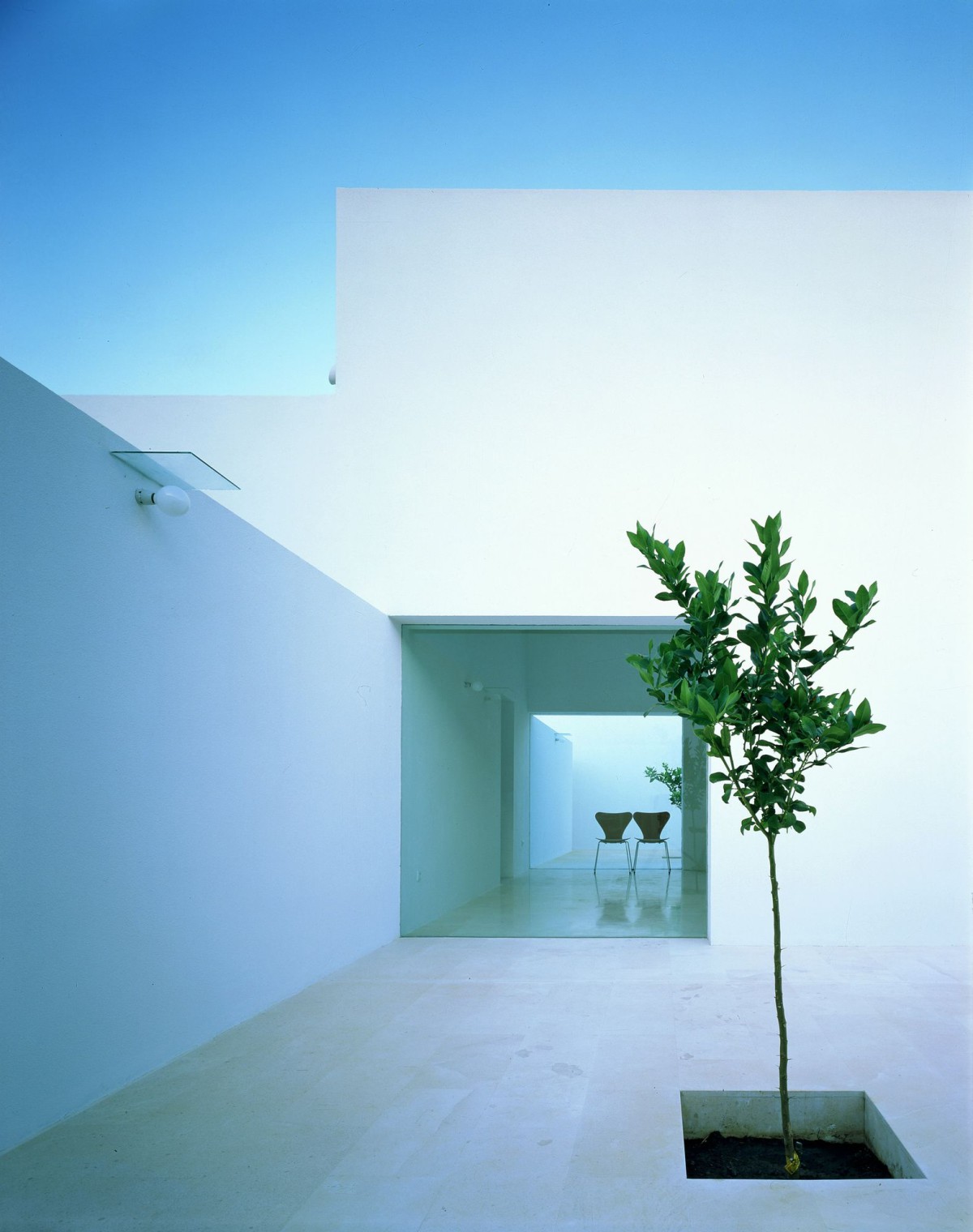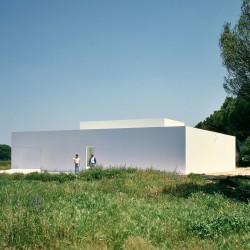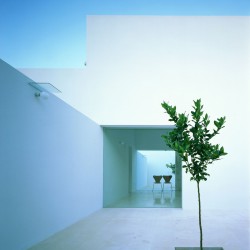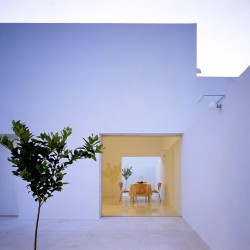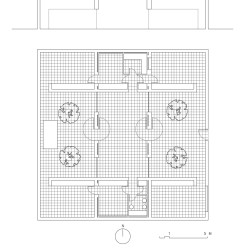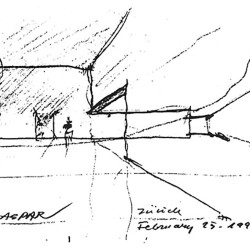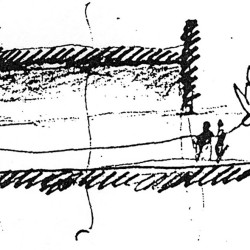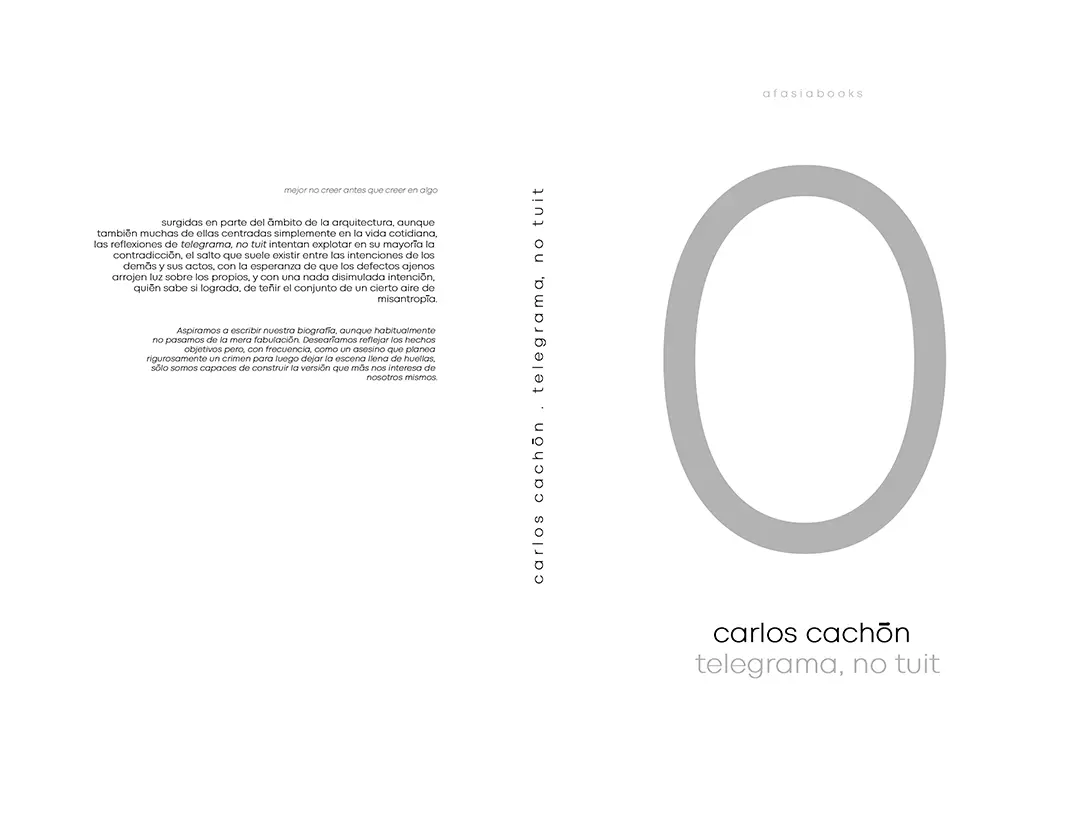At the client’s insistence on absolute independence, it was decided to create an enclosed precinct, a “hortus conclusus” or closed grove. The house, defined by four enclosure walls of 3.5 meters, is based on a square measuring 18 x 18 meters which is subdivided into three equal parts. Only the central portion is roofed. The square is then divided transversely by two, 2 meter high, walls into three parts with the proportions A, 2A, A, the service pieces being located on the sides. The roof of the central space is taller, 4.5 meters high. At the points where the low walls intersect with the taller ones, four openings of 2 x 2 meters are made and simply glazed. It is through these four openings that the horizontal plane of stone paving expands, effectively obtaining a continuity of interior and exterior.
The white color of all the parameters contributes to the clarity and continuity of the architecture. The double symmetry of the composition is emphasized by the symmetric placement of four lemon trees, which produce contemplative reflections.
The Light in this house is horizontal and continuous, mirrored by the east-west orientation of the courtyard walls. Simply, a horizontal, continuous, space is tensed by a horizontal light.
_
Architect: Alberto Campo Baeza. Location: Vejer de la Frontera, Cádiz, Spain. Client: Gaspar Guerrero. Project: 1990. Built: 1992. Area: 110sqm. Photographer: Hisao Suzuky, EACB.
Había una clara voluntad del cliente de una independencia total. Se decidió entonces crear un recinto cerrado, un «hortus conclusus». Se parte de un cuadrado de 18 x 18 m definido por cuatro tapias de 3,5 m de altura, que se divide en tres partes iguales. Se cubre sólo la parte central. Dividido transversalmente en tres partes de proporciones A, 2A, A por dos tapias bajas de 2 m de altura, se incluyen en los costados las piezas servidoras. La cubierta del espacio central se hace más alta, de 4,5 m. En los puntos de intersección de las tapias bajas con los muros altos, se abren cuatro huecos de 2 x 2 m que se acristalan directamente. A través de esos cuatro huecos se expande el plano horizontal del suelo de piedra, consiguiendo así una eficaz continuidad interior-exterior. El color blanco en todos los parametros contribuye a la claridad y continuidad de esta arquitectura. La doble simetría de la composición queda patente por la colocación, también simétrica, de los cuatro limoneros, que producen efectos especulares. La Luz en esta casa es horizontal y continua, reflejada en las tapias de los patios orientados a Este-Oeste. En definitiva, se trata de un espacio horizontal, continuo, tensado por la luz horizontal.

